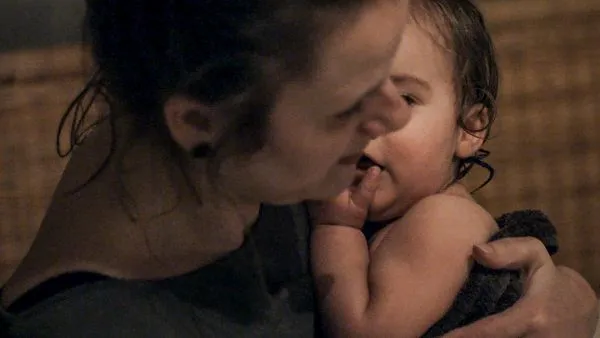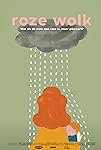Eye For Film >> Movies >> Cloud Nine (2016) Film Review
Cloud Nine
Reviewed by: Jennie Kermode

Having a baby is expected to be one of the happiest experiences in anyone's life. When a couple have carefully planned it and enjoyed the excitement of the pregnancy itself, when the baby is born healthy and everything is in place to support it, it ought to be wonderful - or so people tell themselves - but what happens if it's not? Anne-Marieke Graafmans had an awful experience following childbirth, plunging into a deep depression which made it very difficult for her to care for her child. Feeling that very few people understood what she was going through, she sought out others in the same situation and made this documentary to try and explain.
Post natal depression is thought to affect around 10% to 15% of new mothers, rising to 25% when there are additional stress factors such as poverty. For most of these women it will last only a few weeks and will be distressing much manageable. For some, however, it's completely overwhelming, and can last for months or even years. All four women in Graafmans' documentary have experienced severe problems like this. The film is structured entirely around what they have to say, and although this limits the available context, it provides valuable insight into the experience without objectifying the women or positioning them as problems that need to be solved for their families' sake.
Families are involved, of course. Some of the women's partners talk about how they were affected and the challenges they encountered in trying to provide support. Both they and the women concerned confess to fears that the children would come to harm, either due to the absence of a loving bond or as a direct result of violence. There is talk of doctors suggesting institutionalisation, something that feels very jarring when we're faced with intelligent, articulate women, and which reminds us that mental illness can happen to anyone. Some of the women are still experiencing severe difficulties at the time of filming.
It is a credit to Graafmans as a director that the film does not become hopelessly depressing to watch. Too much interesting information is imparted for the focus to be solely on the emotional. Despite the essential similarity of their experiences, the women actually represent quite a good cross-section of those affected, allowing diverse issues to emerge. One had a first child with no problems but really strugled after the second. Another is terrified of what may happen after her next child is born. As with morning sickness, there seems to be no simple pattern to it. Some talk about retreating from the world, about wanting to end their lives; others focus on the day to day discipline that made it possible to go through the motions even without feeling what they wanted to feel.
The women's children are present throughout, in the background; at the end, they come to the fore, reminding us why some women who go through this are prepared to risk it again, and demonstrating that it doesn't need to permanently wreck family life. An honest portrait of something Graafmans initially struggled to share even with friends, who looked on from the outside and assumed everything was good, Cloud Nine makes the point that any silver cloud can have a dark lining.
Reviewed on: 11 Oct 2017
















